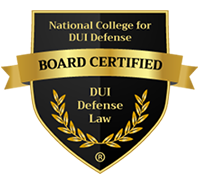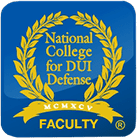If you’re facing second-degree assault charges in Maryland, it’s crucial to understand the legal landscape and your options for defense. Here, we’ll explore what second-degree assault entails, the legal standards surrounding it, potential defenses, and the importance of securing experienced legal representation.
Understanding Second Degree Assault in Maryland
Second-degree assault in Maryland covers a broad spectrum of conduct, encompassing any harmful or offensive touching that results in physical injury to another individual. This offense is distinct from first-degree assault, which involves more severe injuries or the use of a deadly weapon. The legal definition, as per the Maryland Criminal Code, Section 3-203, emphasizes the intentional nature of the touching and its resulting harm.
Legal Ramifications of Second Degree Assault
Although categorized as a misdemeanor in most cases, second-degree assault still carries significant penalties, including imprisonment for up to 10 years and fines reaching $2,500. However, if the assault victim is a law enforcement, parole, or probation officer carrying out official duties, the crime escalates to a felony, potentially resulting in higher fines and prolonged imprisonment.
Navigating the Legal Standards
Proving second-degree assault requires establishing an intentional touching that led to harm. Importantly, the specific injury caused may differ from the intended harm; the critical factor is the perpetrator’s intent to cause harm or offensive contact. This legal nuance underscores the importance of exprienced legal representation in crafting an effective defense strategy.
Exploring Defense Strategies
Individuals facing second-degree assault charges have several potential defenses at their disposal. Self-defense is a commonly invoked defense, allowing individuals to use reasonable force to protect themselves from imminent physical harm. Similarly, defense of others permits intervention to prevent harm to a third party under threat. However, both defenses require that the force used remains proportional to the perceived threat.
Additionally, defendants and victims can jointly petition the court to dismiss charges, subject to the judge’s discretion. Successful negotiations with the prosecution may also lead to reduced charges, such as pleading to a lesser offense like reckless endangerment.
Founding Partner Founding Partner Attorney AttorneyAndrew D. Alpert
Michael J. Schreyer
Michael Berman
Jason Miller
Securing Effective Legal Representation
When facing second-degree assault charges, securing the services of a criminal defense attorney is paramount. An experienced lawyer can assess the specifics of your case, identify viable defense strategies, and advocate for the best possible outcome. Whether through negotiating reduced charges or mounting a robust defense at trial, competent legal representation can significantly impact the trajectory of your case.
Frequently Asked Questions
What factors contribute to determining the severity of second-degree assault charges in Maryland?
The severity of second-degree assault charges in Maryland hinges on various factors, including the extent of physical injury inflicted, the intent behind the assault, and the identity of the victim. While most cases are prosecuted as misdemeanors, the involvement of certain individuals, such as law enforcement officers, can elevate the offense to a felony. Additionally, aggravating circumstances, such as the use of weapons or repeated offenses, may result in harsher penalties upon conviction.

With criminal charges starting at age 18 and I’m now 45 I recently got a subsequent charge. Working hard at family and work life over the years this would have ruined it all. Stressed to the max I searched for the person who could do what others couldn’t. They structured a plan for me and I walked today from court. Being no stranger to the courtroom he was more than impressive, he owned it. Be honest with him, do what he says and you will no doubt be in the best possible position you could be in when you walk in with him. From the bottom of heart I thank you and your team for all that you did!”
- Ryan W.
How does Maryland law define “intentional touching” in the context of second-degree assault?
Maryland law defines “intentional touching” as any physical contact that the perpetrator deliberately initiates with the intention of causing harm or offense to another individual. This definition encompasses a wide range of actions, from direct physical strikes to indirect contact resulting in injury. Importantly, the perpetrator’s intent to cause harm or offense is central to establishing second-degree assault charges, irrespective of the specific manner in which the touching occurs.
What distinguishes second-degree assault from other assault-related offenses in Maryland?
Second-degree assault stands apart from other assault-related offenses in Maryland, such as first-degree assault, due to its focus on the level of harm inflicted and the perpetrator’s intent. Unlike first-degree assault, which involves severe injuries or the use of a deadly weapon, second-degree assault encompasses a broader scope of conduct, including any harmful or offensive touching resulting in physical injury.
How does the concept of “reasonable force” factor into self-defense claims in assault cases?
In self-defense claims related to assault cases, the concept of “reasonable force” plays a pivotal role in determining the validity of the defense. Individuals have the right to use reasonable force to protect themselves from imminent physical harm or to defend others under threat. However, the force employed must be proportionate to the perceived threat, ensuring that the response remains justified in the eyes of the law. Excessive or disproportionate force may undermine a self-defense claim and potentially lead to additional legal repercussions.
Steps to Take if You Were Arrested Today Probable CauseRelated Videos
What role do experienced criminal defense attorneys play in mitigating second-degree assault charges?
Experienced criminal defense attorneys play a crucial role in mitigating second-degree assault charges by leveraging their advocacy experience to craft effective defense strategies. These attorneys thoroughly analyze the circumstances surrounding the alleged offense, identify potential weaknesses in the prosecution’s case, and develop tailored defense arguments to challenge the charges. Additionally, attorneys may negotiate with the prosecution to pursue alternative resolutions, such as reduced charges or plea bargains, to achieve the best possible outcome for their clients.
How do joint requests for charge dismissal work in assault cases, and what factors influence judicial decisions in such matters?
Joint requests for charge dismissal in assault cases involve both the defendant and the victim petitioning the court to drop the charges against the accused. However, the court’s decision to grant such a request hinges on various factors, including the nature of the alleged offense, the relationship between the parties involved, and the judge’s assessment of the petition’s legitimacy. Factors such as remorse, restitution, and the absence of prior convictions may also influence judicial decisions regarding charge dismissal requests.
What steps can individuals take to protect their rights and interests when facing second-degree assault charges?
When facing second-degree assault charges, individuals can take proactive steps to protect their rights and interests throughout the legal process. This includes exercising their right to remain silent and refraining from making statements to law enforcement without legal representation present. Additionally, retaining the services of an experienced criminal defense attorney early in the proceedings can provide invaluable guidance and advocacy to navigate the complexities of the criminal justice system effectively.
How do plea negotiations factor into the resolution of second-degree assault cases, and what considerations should defendants weigh when contemplating plea deals?
Plea negotiations often play a significant role in the resolution of second-degree assault cases, offering defendants the opportunity to plead guilty to lesser charges or negotiate reduced sentences in exchange for avoiding a trial. When contemplating plea deals, defendants must carefully weigh the potential benefits and drawbacks, considering factors such as the strength of the prosecution’s case, the likelihood of success at trial, and the potential consequences of a guilty plea on their future prospects and legal record.
What avenues are available for individuals to challenge second-degree assault charges through legal proceedings, and what are the potential outcomes of such challenges?
Individuals facing second-degree assault charges have various avenues available to challenge the allegations through legal proceedings. This may include filing pre-trial motions to suppress evidence, disputing witness testimony, or arguing legal defenses such as self-defense or lack of intent. The outcomes of these challenges depend on the specific circumstances of each case, the strength of the defense arguments presented, and the court’s interpretation of relevant legal principles.
Verdicts & Settlements
How can individuals obtain a free consultation with a reputable Maryland criminal defense lawyer to discuss their second-degree assault case?
Individuals facing second-degree assault charges in Maryland can obtain a free consultation with a reputable criminal defense lawyer by reaching out to legal firms focusing on criminal law, such as Alpert Schreyer, LLC. During the consultation, experienced attorneys can evaluate the details of the case, provide personalized legal advice, and outline potential defense strategies tailored to the individual’s circumstances. This initial consultation serves as an essential first step in securing effective legal representation and safeguarding one’s rights throughout the legal process.
If you’re confronting second-degree assault charges in Maryland, don’t navigate the complexities of the legal system alone. At Alpert Schreyer, LLC, our team of experienced criminal defense attorneys is dedicated to protecting your rights and advocating for the best possible outcome in your case.
Take the first step towards securing your future by scheduling a free consultation with our knowledgeable legal team. During this confidential meeting, we’ll assess the details of your case, discuss potential defense strategies, and provide clear guidance on the most effective course of action.
Don’t let second-degree assault charges jeopardize your future. Contact Alpert Schreyer, LLC today to schedule your free consultation and put a legal advocate in your corner. Your rights and your future deserve nothing less than exceptional representation.





















